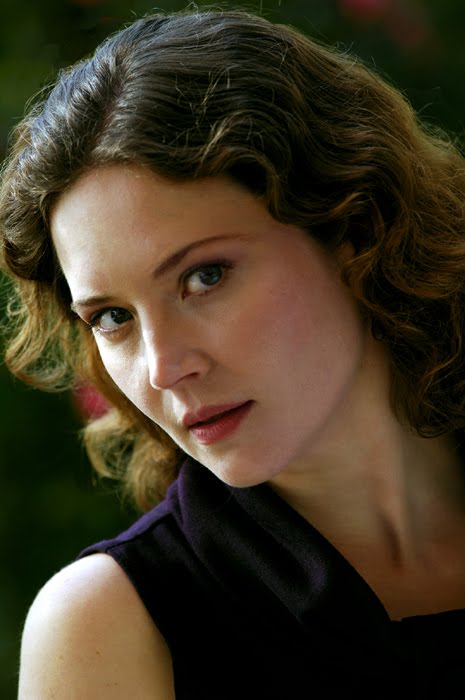Helios Early Opera plays Cavalli’s “Artemisia” mostly for laughs in enjoyable North American premiere

Julianne Gearhart sang the title role in the North American premiere of Cavalli’s “Artemisia,” performed Friday night by Helios Early Opera in Somerville, Massachusetts.
Francesco Cavalli’s Artemisia received its North American premiere, presented by Helios Early Opera at the Armory in Somerville, Mass. on Friday.
Written more than three hundred years ago for the Venetian stage and now rarely performed, Artemisia doesn’t exactly fall in the standard repertoire. Even within the Baroque repertoire, Cavalli lacks the reputation and draw of his contemporary Monteverdi. But it’s a sign of Helios Opera’s success that Friday’s performance of Artemisia gave no indications of its age and relative obscurity. On the contrary, Artemisia felt both fresh and lively, featuring gorgeous singing and a clever production.
Cavalli’s original libretto, as worked out by the Italian poet and lawyer Nicolo Minato, is set in sixteenth-century Venice and centers on the travails and machinations of several star-crossed lovers in the household of the queen, Artemisia. Helios has decided to update the setting, leapfrogging three hundred years and situating the opera in modern-day Hollywood.
Purists may complain, but there are several good reasons for this choice. One is budget: getting a Gucci knockoff is probably much easier than finding a credible Venetian gown in the Baroque style. Another is that this preserves the topical relevance of Cavalli’s original. The title character Artemisia is a Venetian queen trapped by passion and the constraints of her social position; in Helios’s production, Artemisia is a Hollywood star. Given the tabloid scrutiny on our celebrities, the change in setting is not the stretch it might seem.
One feels that the creative team of Helios, particularly stage director Aria Umezawa, were thrilled with this opportunity to combine a love of early music with contemporary sensibilities. The very liberal “translation” of the libretto, for instance, is deliciously postmodern, enthusiastically mashing together direct translations from Minato with pop songs and Emily Dickinson (and a few typos).
Helios’s other major artistic decision was to produce Artemisia as a comedy. The opera certainly has its share of comic elements, and Friday’s production was so lively and funny that it’s easy to believe that that’s what the work is. But Artemisia is much more than a comedy. Most of the characters spend the bulk of their time genuinely pining for love, and Cavalli’s music reflects this. Taken seriously, even the comic elements gain depth. For example, Erisbe, Artemisia’s spinster maid, who seems to exist just for laughs, is also a warning to the lovers of their losing precious time. In Helios’s staging, this serious underside is only scratched, and characters only seem to have moments of genuine feeling in spite of themselves.
A result, possibly, of Artemisia being produced as a comedy is that the characters’ subtle evolutions are glossed over. A piece of criticism often leveled at the work is that it’s overplotted; in truth, it’s underplotted. There are one or two turns that jolt things along, but much of what happens is characters repeating how much their hearts are aching, how they wish Cupid would leave them alone, etc. The repetition of numbers with the same sentiment can feel slightly vapid and over the top, and from Friday’s performance it was impossible to tell if the fault lay with Helios or Cavalli.
Although the subtleties of character development were sometimes lacking, the singing and acting were strong all around. A difficulty with a work like Artemisia is the sheer number of characters. Gracing the stage were not one, but three star-crossed lovers, some of whom were pretending to be other people. Fortunately, Helios’s cast was well up to the task.
Julianne Gearhart was perfect as Artemisia, combining movie-star looks with a strong, crystalline voice. Margot Rood as Ramiro brought probably the strongest and most fluent voice to the production; her dispatch of Cavalli’s scales and roulades were thrilling. Dawn Bailey as Artemia, though without as deep a vocal reserve, sang sensitively and did full justice to her aria, Ardo, sospiro, e piango, possibly the most beautiful stretch of music in the work.
Elizabeth Merrill, whose character Oronta toggles between two identities, succeeded marvelously in shaping her two identities with vocal means alone. Andrew Pickett’s Meraspe, though sensitively sung, needed more vocal incision for his role as the vertex of the opera’s numerous love triangles, though his voice did warm up later on. Eriak Vogel as Eurillo, Gerrod Pagenkoph as Niso, Marcio de Oliveira as Erisbe, Raquel Winnica Young as Alindo, and Will Prapestis as Indamoro rounded off with sound singing and engaging acting.
The small orchestra, under musical directors Dylan Sauerwald and Zoe Weiss, was intimately in sync with the singers and gently propelled Cavalli’s music from beginning to end.
Artemisia repeats 7:30 p.m. Saturday and Sunday at the Somerville Armory. heliosopera.com